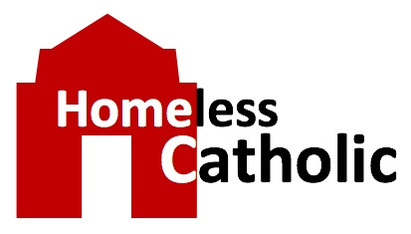Man-made Barnacles
The trouble was, the observances which the Pharisees insisted on were more like man-made barnacles attached to the rock of revealed truth than they were true signs of faithfulness to the covenant. They did not originate with God and were not of God. So, the stage was set for a showdown. In the verses immediately preceding today's passage the Jews drew the sword of their posterity --- "They answered him, "Abraham is our father."' In response, Jesus offered the shield of his own posterity --- "before Abraham came to be, I AM.”
31716 Reflection - Signs
http://www.usccb.org/bible/readings/031716.cfm
A "covenant" is a contract; and there are several of these in the Old Testament. This morning's reading is about one of the early ones: “My covenant with you is this: you are to become the father of a host of nations." The text spells out the terms in detail.
"I am making you the father of a host of nations.
I will render you exceedingly fertile;
I will make nations of you;
kings shall stem from you."
"I will give to you and to your descendants after you
the land in which you are now staying, as a permanent possession;
and I will be their God.”
Some covenants are reciprocal, requiring performance of some kind by each party to the covenant; this one does not. God unilaterally binds himself to accomplish certain things for and through Abraham. Ultimately, circumcision is introduced as a sign of this covenant, an indication that this person is a descendant of Abraham and an heir to the promises which the Lord made to him
Years later, when, through the power of God, Moses brought the children of Abraham out of the land of Egypt, a new relationship was established between God and Abraham's descendants. While the cornerstone of that new connection was the Passover event in which the lamb was sacrificed and the Hebrews were saved from the angel of death, the capstone was placed when Moses presented the Law and the Hebrews affirmed their intention. "All that the LORD has spoken we will do." (Exodus 19:8) The formal dedication would immediately follow. "Moses took half of the blood [from the sacrificed animals] and put it in basins, and half of the blood he threw against the altar. And Moses took the [basin of] blood and threw it upon the people, and said, "Behold the blood of the covenant which the LORD has made with you in accordance with all these words." (Exodus 24:6, 8)
The covenant God made with the people, there, at the foot of Mt Sinai, is easily summarized: "If you obey the commandments of the LORD your God which I command you this day, by loving the LORD your God, by walking in his ways, and by keeping his commandments and his statutes and his ordinances, then you shall live and multiply, and the LORD your God will bless you." (Deuteronomy 30:16) An even more succinct rendering of the agreement is found elsewhere in the Scriptures. "I will be your God, and you will be my people."
Through the centuries, the sign of the covenant took different forms, always in accordance with what the understanding and practice of the people required. In the early years the focus was primarily on the truth that there was one God, and only one God. However, the practice of paganism, even throughout the region of the Promised Land, continued to obstruct faithfulness to the covenant relationship for decades. And, while the Temple at Jerusalem (envisioned by David and built by Solomon) was intended, at least in part, to eliminate the 'high places' of pagan worship scattered throughout the kingdom of Israel, even King Solomon reintroduced temples of pagan worship for his foreign brides. Nevertheless, the Temple, as a single place of worship, both signified and promoted the belief in one God. But it was not until the period of the Babylonian exile that the belief in one God finally found universal acceptance and practice among the children of Abraham. The sign of the covenant then took a new form, specifically directed toward honoring the one and only God. That new form was the emphasis on the Sabbath and adherence to the Sabbath rest.
Keeping holy the Sabbath predated even the the ten commandments. The practice is mentioned prior to the arrival at Mt Sinai during the Exodus journey when God began feeding the people with manna.
"He [Moses] said to them, "This is what the LORD has commanded: 'Tomorrow is a day of solemn rest, a holy sabbath to the LORD; bake what you will bake and boil what you will boil, and all that is left over [of the manna] lay by to be kept till the morning.' So they laid it by till the morning, as Moses bade them. Moses said, "Eat it today, for today is a sabbath to the LORD; today you will not find it in the field. Six days you shall gather it; but on the seventh day, which is a sabbath, there will be none." (Exodus 16:23-26)
It is this unfolding pathway of history which comes into play during so many of the confrontations between Jesus and the Jews, including the one which initiated the exchange we heard this morning. The Jews might outline it this way:
- God made a contract with Abraham and his descendants.
- He began fulfilling that contract through Moses.
- God then entered into a second covenant with the children of Abraham.
- We are the children of Abraham.
- We keep our part in the covenant with God by observing the Sabbath.
- If you violate the Sabbath you violate the covenant and cannot be of God.
- Jesus violates the Sabbath. . . Therefore. . .
The trouble was, the observances which the Pharisees insisted on were more like man-made barnacles attached to the rock of revealed truth than they were true signs of faithfulness to the covenant. They did not originate with God and were not of God. So, the stage was set for a showdown. In the verses immediately preceding today's passage the Jews drew the sword of their posterity --- "They answered him, "Abraham is our father."' In response, Jesus offered the shield of his own posterity --- "before Abraham came to be, I AM.”
Life would be simpler if each of us could write his own rules and pick his own signs for designating mankind's relationship with God. When the rules and the designated signs come from somewhere else they can appear not only imposing, but impossible. Nevertheless, God's plan doesn't seem to allow for individual control. We heard the arrangement that was divinely designated this morning: "If you obey the commandments of the LORD your God then you shall live and multiply, and the LORD your God will bless you." The message was so important that it was restated many times in the Old Testament: "If you obey the commandments of the LORD your God which I command you this day, loving the LORD your God, obeying his voice, and clinging to him; that means life to you." (Deuteronomy 30:16, 20) And then, Jesus says it again in the gospel passage today: "whoever keeps my word will never see death.”
As much as we might like to do so, we don't get to pick the sign of the covenant either. We don't get to pick it for ourselves; and we certainly don't get to pick it for others. Yet the Pharisees and their proclivity for choosing the 'proper' signs have not been anomalies in human history. Throughout the ages, and still today, there is the tendency to determine an individual's relationship to God according to signs chosen by human selection.
The fact is, and we all know it, we are in no position to establish a spiritual criterion for others. We can encourage a spiritual devotion; we cannot insist on it as the sign of commitment to Jesus. We may suggest an alternative behavior; we may not order it as a sign that conclusively illustrates faithfulness to the Lord. For, in all probability, whatever sign we choose will be human in origin or human in its requisite rules of observance.
Besides, the sign which God chose and which Jesus reiterated is both simpler and more difficult than any we would choose for ourselves or for others.
"By this all men will know that you are my disciples, if you have love for one another." (John 13:34-35)

